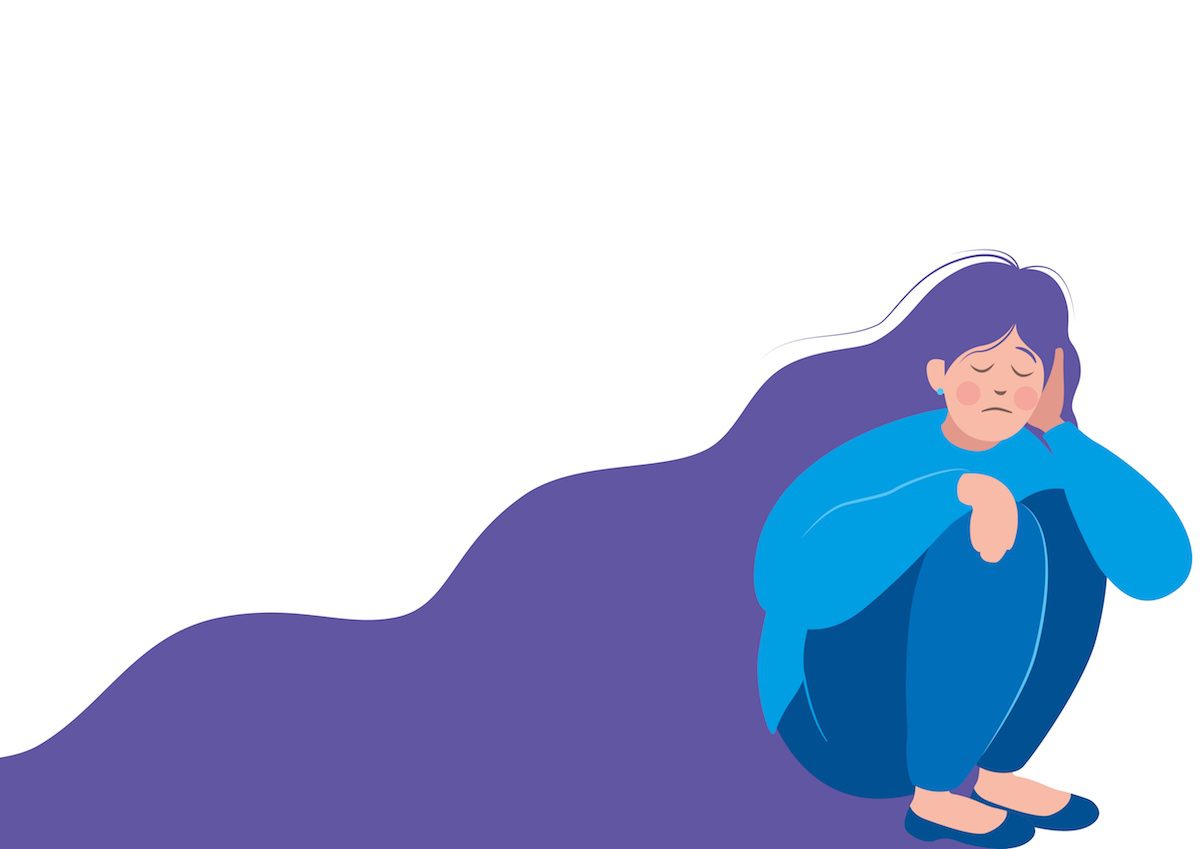 (Illustration: Jobalou/Getty Images)
(Illustration: Jobalou/Getty Images)
Editor’s note: This interview is about eating disorders, which may be difficult for some readers.
A little over a year ago, I was in the hospital battling an eating disorder. My inpatient stay was scheduled to last two months, but at six weeks, I was finally overcome with an intense desire to fully re-immerse myself into society after years of living a half-life. I couldn’t bear to live another day avoiding the uncertainty that encompasses the future, because a life like that is one spent shrinking to fit into a glorified past — an unsustainable venture.
Now, nearly a year into the global pandemic, we are still socially distancing and there is constant fear of contracting COVID-19. We aren’t necessarily living in a world fit for anxious anorexics. But, somehow, after a couple of initial rocky months of quarantine, I have managed to continue to grow and flourish on my path to recovery.
In an effort to help others feel less alone, I reached out to Emma Hyslop, a freelance creator from Newfoundland, Canada, whose Instagram account realistically depicted recovery in a gentle and understanding way. Wanting to learn more about the woman behind the thoughtful stories and captions from which I derived motivation in recovery, I asked her to chat for a bit regarding eating disorders during quarantine.
This interview has been edited for length and clarity.
Margot Francini: What inspired you to create your space on Instagram in the first place?
Emma Hyslop: I love to create, and I needed a creative outlet. It’s something I’m grateful for because in some ways, it helped me heal from my eating disorder. I also connected with so many young girls primarily that had struggled with similar issues that I have been in. I’m in a different place now so I won’t talk about my eating disorder there as much, but I will when I feel called to. I think it makes you feel so much less alone. Social media can be a helpful outlet for sure.
Margot Francini: What did/does your eating disorder feel like?
Emma Hyslop: It seems like you’re almost trying to chase this high of feeling really good because you know you can fit into the smallest size that the store sells, and maybe that’s even too big on you. So it gives you this dopamine effect, but it’s almost like you’re completely numb, and you have no idea what’s happening around you. You’re just existing, you’re not living. It’s almost like you’re outside of a house, and you want to have fun with the people inside the house, but you’re trapped outside. It’s like, the world is happening around you. But everything that happens in your brain, everything you experience is almost like, slow and numbing. That’s how I’ll explain it.
Margot Francini: What is your advice for people who are in deep denial, or who don’t have people to talk to about this stuff?
Emma Hyslop: I think it comes down to a lot of introspection. You have to ask yourself hard questions. You have to become so truthful with yourself and realize that you are the only one who can help yourself at the end of the day. There will be people along the way who will try to help you, but you’re going to have to work hard to make the change that you want to see. And that’s something that I realized was like, no one can help me. I can only help myself and I want to change. You have to really want to change, I think, in order to do that.
Margot Francini: Any tips you have for creating a more supportive mindset for yourself?
Emma Hyslop: When my anxiety gets really bad, then things can kind of start to unravel. So first I identify what’s making me the most anxious. For me, that is having a lot on my plate. So I’ll write out lists when I’m drinking my morning coffee to ensure my thoughts are organized. Getting outside every day has been so key for me in my recovery, just for my mental health overall.
It’s about taking care of myself at the end of the day and learning to say “no” sometimes. I don’t know if this is just me, but I think a lot of people who struggle or have struggled with eating disorders are naturally people-pleasers. And we just want to say “yes,” all the time. But learning to say “no” doesn’t make you a bad person, it just makes you have boundaries. And that can empower you because you have enough respect for yourself.
NOTE: If you are in crisis, please contact the Crisis Text Line by texting TALK to 741741.